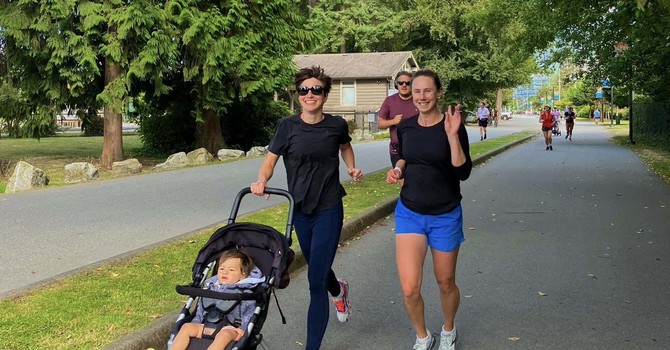
As a parent, it can be concerning to notice anything unusual in your baby's development. Torticollis and plagiocephaly are two common conditions that can affect infants, but the good news is that physiotherapy offers effective treatments to address these conditions. We’ll explain what torticollis and plagiocephaly are, how they are related, and how physiotherapy can help your baby achieve their developmental milestones more comfortably.
What is Torticollis?
Torticollis, also known as "wry neck," is a condition where a baby's neck muscles are tight on one side, causing the head to tilt to one side and the chin to point to the opposite shoulder. This condition can be congenital (present at birth) or acquired due to positioning and environmental factors.
Common Signs of Torticollis:
- Head tilted to one side
- inability to fully turn head to one side
- Preference for looking in one direction
- Flattening on one side of the head (plagiocephaly)
What is Plagiocephaly?
Plagiocephaly, often referred to as "flat head syndrome," occurs when a baby's head develops a flattened appearance on one side. This condition is often associated with torticollis because the baby's head consistently rests on one side due to the neck muscle tightness.
Common Signs of Plagiocephaly:
- Flattened area on one side or the back of the head
- Asymmetry in the head shape
- Uneven positioning of the ears
- How Are Torticollis and Plagiocephaly Related?
- Torticollis and plagiocephaly are often interconnected. The muscle tightness in torticollis can lead to the baby favoring one side, resulting in constant pressure on that side of the head and causing plagiocephaly. Addressing torticollis early can help prevent or reduce the severity of plagiocephaly.
How Physiotherapy Can Help
Physiotherapy is a highly effective treatment for both torticollis and plagiocephaly. A physiotherapist specializing in pediatric care can create a personalized treatment plan to address your baby's specific needs.
- Assessment and Diagnosis
A thorough assessment by a physiotherapist will determine the severity of torticollis and plagiocephaly. This includes evaluating your baby's neck range of motion, head shape, and muscle strength. - Gentle Stretching and Strengthening Exercises
Physiotherapists use gentle stretching exercises to improve the flexibility of the neck muscles and increase the range of motion. Strengthening exercises help to balance the muscles on both sides of the neck. - Positioning Techniques
Parents will be guided on proper positioning techniques to encourage the baby to turn their head in both directions. This includes tummy time, varying the baby's head position during sleep, and encouraging head movement during playtime. - Environmental Modifications
Advice on modifying the baby's environment to promote symmetrical head movements, such as alternating the direction the baby faces in the crib and using toys to attract attention to the non-preferred side. - Parental Education and Support
Physiotherapists provide education and support to parents, ensuring they understand how to perform exercises correctly and how to integrate them into daily routines effectively.
Benefits of Early Physiotherapy Intervention
- Prevents Progression: Early intervention can prevent the worsening of torticollis and plagiocephaly.
- Promotes Symmetrical Development: Ensures balanced muscle development and symmetrical head shape.
- Enhances Motor Skills: Supports the development of gross motor skills and overall physical development.
- Reduces Need for Further Treatment: Early physiotherapy can reduce the likelihood of needing more intensive treatments later on.
So, what next?
Torticollis and plagiocephaly can be concerning for parents, but with early and effective physiotherapy intervention, your baby can achieve healthy and symmetrical development. At Hollyburn Physiotherapy Clinic, we are very proud to have Physiotherapists who specialize in treating pediatric conditions like torticollis and plagiocephaly with compassionate and expert care.
If you have noticed signs of torticollis or plagiocephaly in your baby, don't hesitate to contact us. Schedule an appointment today and let us help your baby grow and develop comfortably and healthily.
Nazly Naseri
Contact Me


